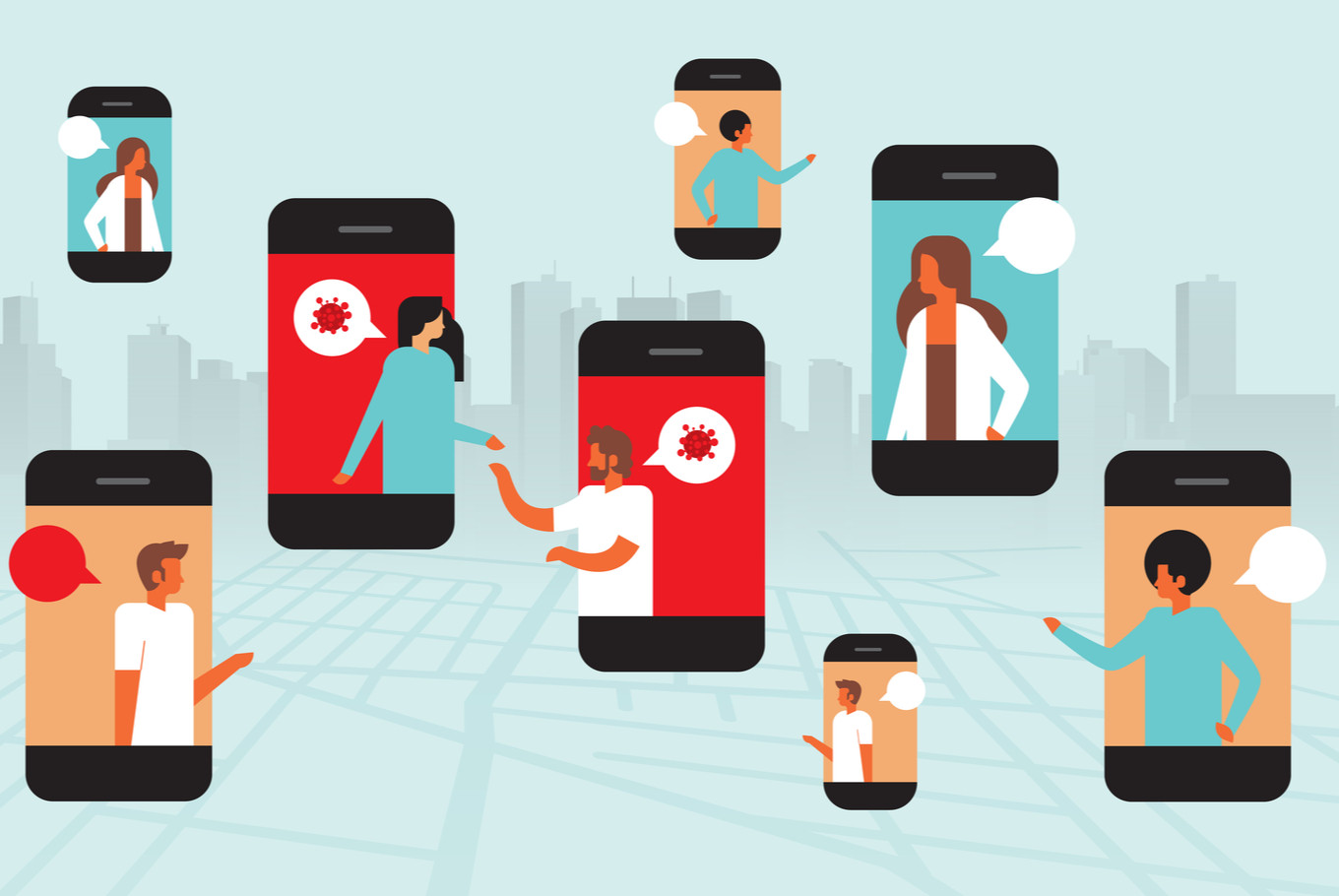Popular Reads
Top Results
Can't find what you're looking for?
View all search resultsPopular Reads
Top Results
Can't find what you're looking for?
View all search resultsBrave new technology for post-pandemic society
We can also utilize technology to substitute physical contact. As people are required to avoid direct or indirect physical contact, conventional attendance or barrier gate systems that use card tapping or fingerprints are no longer relevant.
Change text size
Gift Premium Articles
to Anyone
T
he COVID-19 pandemic is an unforeseen crisis that hit the world earlier this year. Starting in Wuhan, China, COVID-19 has spread to more than 216 countries worldwide. The rapid transmission has shaken the world, which was never prepared for its impact. The health crisis has not only affected the health sector but has also had a domino effect on all socioeconomic sectors.
Most countries have implemented lockdown policies to prevent the spread of COVID-19. This might be the best option to reduce the potential number of infections. However, the best always comes with consequences. By applying a lockdown policy, countries have been forced to halt their domestic and international socioeconomic activities. People are asked to stay at home and engage in fewer physical activities like working, traveling or shopping outside their homes.
Indonesia is among the countries hit by the virus. The announcement of the first COVID-19 cases by President Joko “Jokowi” Widodo on March 2 marked the beginning of the government’s struggle in fighting the COVID-19 transmission. As of July 21, Indonesia had recorded a total of 89,869 cases with 48,466 recoveries.
The government has made a number of efforts to break the chain of COVID-19 transmission. Large-scale social restrictions (PSBB), which were initiated by the government, are more or less similar to a lockdown policy in other countries. The policy has limited socioeconomic activities rather than stopping them to prevent our economy stumbling. However, many warn that Indonesia will face the threat of recession with several indicators emerging in the past three months, such as the declining economic growth rate and increasing unemployment and poverty rates.
Despite the number of cases reaching 1,000 per day, the government recently launched a post-pandemic policy, which allows businesses to open and people to travel. The introduction of “Adaptasi Kebiasaan Baru”, known as "the new normal", requires people to follow the Health Ministry's protocols as the new guidelines for the post-pandemic society.
In the new normal or post-pandemic era, all people are obliged to wear masks, avoid physical contact, maintain physical distance and undergo body temperature screening in public places or facilities. How will people adapt to the new protocols in running their daily activities? What can technology do to accelerate the adaptation?
Technology is one of the necessary tools to help people adapt. The rapid development of technology like artificial intelligence (AI), the internet of things (IoT) and big data will help us to automate some processes without any human intervention. These technologies can empower other existing technology like CCTV, public address systems and even our mobile phones.
For example, social-distancing protocols might require the government to place security guards everywhere, which would be impossible. It would force the government to allocate more resources in terms of funding and manpower, which often leads to inefficiency. The process needs to be brief and strengthened with the help of technology. For instance, an AI engine can empower CCTV to be able to detect crowds automatically. Even further, IoT-based public address systems will help to disperse crowds immediately and automatically.
We can also utilize technology to substitute physical contact. As people are required to avoid any physical contact, conventional attendance or barrier gate systems that use card tapping or fingerprints are no longer relevant. Those conventional methods can be replaced with touchless technology such as facial-recognition systems, which allow people to open door access using their faces while logging their attendance at the same time.
The new precautions also require building managements or the government to screen their visitors or people who have been in public places, such as MRT stations, Commuter Line stations, hospitals and so on. To do this, they have to allocate more manpower on the ground to manually monitor visitors' temperatures and check mask usage. AI-powered CCTVs with attached thermal sensors can automatically detect a person’s body temperature and whether he or she is wearing a mask or not. Integrated with a barrier gate, it will automatically open the gate when it detects one has a normal body temperature and is wearing a mask.
Above all, the entire data captured through CCTVs and other sensors will be regarded as big data in the post-pandemic era. Presidential Regulation No 39/2019 on data provides a strong base to stimulate big data utilization in social aid distribution data, despite the challenges in a crisis. Big data can play a major role in adaptation in a post-pandemic period, especially in formulating better decisions for the future.
We might finally realize the dream for a digital life by minimizing human interventions to reduce physical contact and shorten processing time. As everything happens automatically, we can reap the benefits to accelerate the adaptation process. In the end, with the dynamics of technological innovation, we surmise the vast possibility for technology can be capitalized for greater purposes in our society. (wng)
***
The writer acts as government relations at Qlue, a comprehensive smart city provider company in Indonesia, which comprises leveraging workforce management, artificial intelligence (AI) and internet of things (IoT). Anthony is Qlue’s point of contact for communications across city governments. He has a strong passion for smart city, urban development, socio-political sector and digital governance.












